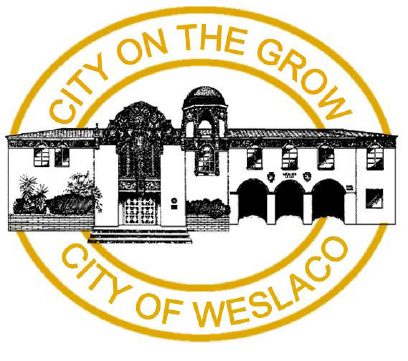Plans to develop a 40-acre plot of land on Weslaco’s north side into a multiuse park and nature area have hit a snag after a spate of construction bids came in hundreds of thousands of dollars over budget.
Officials initially expected costs on the first phase of the project to come in at around $1.4 million, but after several companies responded to the city’s request for bids with quotes far beyond that estimate, city leaders have been forced to reconsider how to move forward with the project.
The lowest bid came in at $2.1 million, Assistant City Manager Andrew Muñoz explained to the Weslaco City Commission during a meeting Tuesday evening.
“We’re just a little frustrated because it’s not moving as quickly as we wanted to, but there’s certain things we can’t control,” said Weslaco City Manager Mike Perez on Thursday.
Muñoz urged the commission to reject the bids in order to allow the park project’s design team to cut costs by reworking the design before opening the project up to a new round of bids.
“ We’re talking about probably $800,000, which modifies the scope too much, so we weren’t comfortable moving to negotiations for the best and final offer,” Muñoz said of how much the bid exceeded initial cost estimates.
“So, what we prefer to do is go back and redesign the entire park to try to get it back to the budget,” he said.
The 40-acre green space is slated to complement a new fire and police substation along Mile 11 North Road that the city first broke ground on last spring. Already, the city has laid down caliche for use by walkers and joggers, Perez said.
Once completed, the complex will include a variety of amenities, including natural spaces with native plants, a small lake, walking and jogging trails, a splash park and playscapes. The park will also include facilities for various sports, including softball and baseball practice fields, soccer fields, a basketball court and volleyball court, Perez said.
“We’re gonna have some what we call wetland areas for migratory birds. We’re leaving some native trees,” Perez said. The park will also include a solar-powered lighting system.
It’s an ambitious recreational development project the city expects to complete in phases over the next 5-10 years, the city manager said.
The construction bids received by the city in recent weeks pertain to just the first phase of the project, which will be funded in part by two grants, with the city shouldering the remainder of the cost.
“We got a half a million dollar grant and it’s from Texas Parks and Wildlife, and it’ll be … 20-25% (of the cost of) this section of the park development,” Perez said.
An additional $500,000 is coming from a Knapp Community Care Foundation grant.
But, it was the state funding that had city staffers especially concerned when the Phase 1 construction bids came in so high. That money — disbursed via a grant program administered by the Texas Parks and Wildlife Department — originates from a federal funding program from the U.S. Fish and Wildlife Service, Perez said.
“After meeting with the design team and looking at federal grant requirements — at what we need to do for the grant requirements — there’s going to be considerable change to the (project) scope,” Muñoz explained to the city commission.
Muñoz estimates the costs can be brought down by at least $450,000 after redesigning landscaping, irrigation and concrete plans, as well as redesigning a proposed detention pond. Additional cost reductions may be realized by redesigning some of the park’s amenities, such as the splash pad, he said.
“The biggest area that we’re focusing on for the cost cuts is going to be in the civil (engineering) work,” Muñoz said.
However, the project’s partial federal funding puts additional constraints on the redesign. The grant comes with a 2-year deadline for use, and already, the city has spent six months in creating the original design and seeking the first round of bids.
District 1 Commissioner Leo Muñoz worried that the process of rejecting the bids and seeking new ones, along with redesigning the project, would cause the city to waste valuable time. “All we’re doing here is we’re losing time,” Leo Muñoz said.
“I mean, we’re gonna rebid it again and come back to the same number that we were before?” he asked the city manager.
The commissioner also worried that the design team would be attempting to reconfigure the project without any input from the construction companies about how their bids had come in so much higher than the city’s projections.
“I thought the idea was to talk to (the bidders) about what areas of the project may be coming in a little high so that (the design team) can know exactly what it is and therefore go on to design those areas a little different,” the commissioner said.
Ultimately, the commission agreed to allow the design team to rework the design and rejected all three construction bids. Perez said staff could likely bring new plans to the commission within 60 days. At that point, the project can again be put out for bid.





